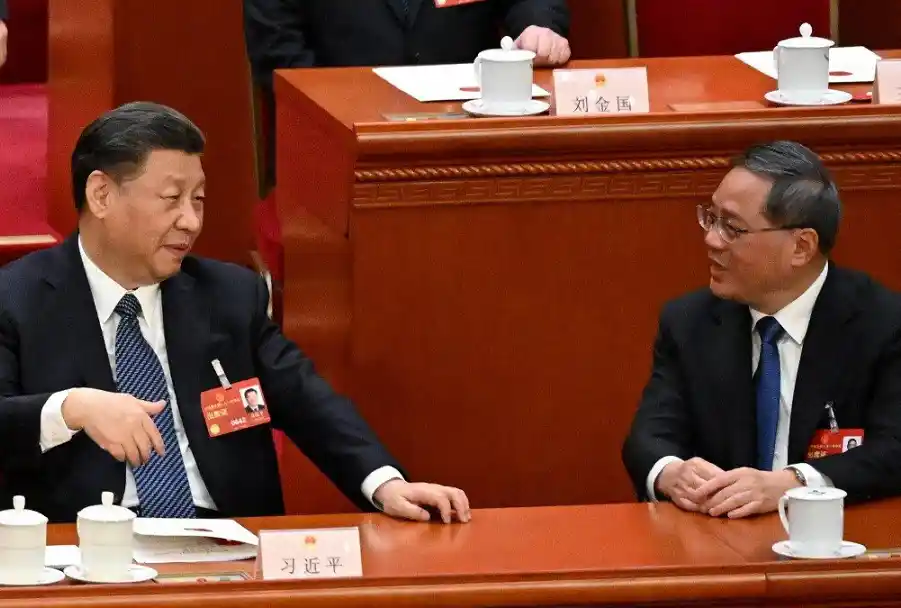The anticipation surrounding the upcoming G20 summit in India has been met with uncertainty, as recent signals from China suggest that President Xi Jinping may not attend the event. This potential absence carries significant diplomatic weight and raises questions about the reasons behind China’s hesitance. In this article, we will delve into the key factors contributing to China’s signalling that President Xi might skip the G20 summit and explore the potential implications of this decision.
1. Ongoing Border Tensions
a. Historical Disputes Flaring Up
The foremost factor casting a shadow over Xi Jinping’s attendance is the persistent border tensions between China and India, especially in the Himalayan region. This longstanding border dispute has led to sporadic clashes and skirmishes, creating an atmosphere of distrust.
b. Geopolitical Sensitivity
China appears cautious about President Xi’s visit to India amidst these border tensions. The delicate geopolitical climate has led China to carefully evaluate the optics of such a visit, particularly in light of the unresolved border issue.
2. The Shadow of the Quad Alliance
a. India’s Role in the Quad
The emergence of the Quad, an informal strategic forum comprising the United States, Japan, Australia, and India, has raised concerns in Beijing. China views the Quad as a strategic alliance aimed at curtailing its influence in the Indo-Pacific region.
b. Avoiding Direct Confrontation
China may be inclined to skip the G20 summit in India to avoid direct interactions with India within the Quad framework. This strategic move aims to minimise confrontations with Quad members and maintain a diplomatic distance.
3. Diplomatic Posturing
a. Expressing Dissatisfaction
China’s decision to potentially skip the G20 summit can be seen as a diplomatic signal of its displeasure with India’s recent actions and policies, both concerning border disputes and India’s involvement in international alliances like the Quad.
b. Sending a Clear Message
By abstaining from the summit, China may be conveying a message to India and the global community that it will not participate in diplomatic activities that do not align with its strategic interests.
4. Concerns Amid the Pandemic
a. Pandemic-Related Restrictions
The ongoing COVID-19 pandemic has disrupted international travel and gatherings. China could cite pandemic-related concerns as a reason for President Xi’s potential absence, even if diplomatic issues weigh more heavily in the decision-making process.
b. Prioritising Health and Safety
China might argue that it priorities the health and safety of its delegation by avoiding international travel during the pandemic, a stance consistent with its efforts to contain the virus’s spread.
5. Economic Considerations
a. Complex Economic Relations
The economic relationship between China and India is multifaceted, with trade ties playing a significant role. However, trade disputes and regulatory changes have strained economic relations in recent years.
b. Preference for Bilateral Talks
China may prefer bilateral economic discussions with India over multilateral talks at the G20 summit, where the agenda encompasses a broader array of global issues. This approach allows for a more focused dialogue on economic matters.
Implications for the G20 Summit
a. Diplomatic Tensions on Display
China’s potential absence from the G20 summit could exacerbate diplomatic tensions in the region. It may signify China’s reluctance to engage in constructive dialogue on regional and global challenges.
b. Hindered Progress on Global Issues
Without China’s participation, the G20 summit may encounter difficulties in making substantial progress on critical global issues. These challenges include climate change mitigation, global economic recovery, and pandemic response strategies.
c. India’s Delicate Diplomatic Balancing Act
As the host nation, India faces a delicate diplomatic balancing act. It must fulfil its responsibilities as the summit’s host while navigating the complexities of its diplomatic relations with China.
China’s signals that President Xi Jinping may not attend the G20 summit in India reflect a complex interplay of diplomatic, geopolitical, and strategic considerations. While it is not uncommon for leaders to abstain from international events, China’s decision carries significant weight due to its status as a major global player. The absence of China’s leadership at the G20 summit could have profound implications, affecting the summit’s ability to address pressing global challenges effectively. It underscores the importance of diplomatic efforts to resolve underlying issues and maintain stability in the region. The international community will closely monitor the situation and its potential repercussions on regional and global dynamics.

